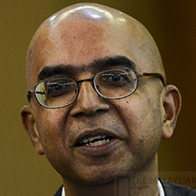What’s the future of the Malaysian Senate?

Rama Ramanathan, The Malaysian Insider
The job of Parliament is to ensure that the Cabinet, composed of the prime minister and ministers, carries out the will of the people. The Cabinet is supposed to carry out the will of the people by crafting policies and laws for approval by Parliament and by executing them under the supervision of Parliament.
The parliament of Singapore is unicameral, whereas the Parliament of Malaysia is bicameral. That means Malaysia has a lower house (House of Representatives or Dewan Rakyat) and an upper house (Senate or Dewan Negara) to represent the people, make laws and monitor the Cabinet, whereas Singapore only has one house.
Why is there a difference between Malaysia and Singapore?
It’s different because Malaysia is a Federation, while Singapore is a city-state.
In a bicameral system, all policies and laws, except “money bills,” must be approved by both houses.
Typically, the lower house – the Dewan Rakyat – is composed of members (MPs) elected by citizens in largely self-governed, distinct geographical areas.
In Malaysia, states and Federal Territories are largely self-governed; so, they elect MPs to the lower house. Because the number of persons living in these areas varies, so does the number of MPs from each area.
For instance, the population of Johor is over 10 times as large as that of Perlis. Should Johor and Perlis have the same number of representatives in the Dewan Rakyat?
The Federal Constitution answered the question in 1957. The answer hinged on the principle of proportional representation.
Under that principle, areas with larger populations get more voices in Parliament, and thus more opportunity to influence national decisions.
That principle still applies. Presently, amongst the peninsular states, Johor has the largest number of representatives (26) and Perlis has the smallest number (3).
One of the dangers of states with larger populations having greater influence over national decisions is that factors other than size of the population may be ignored in decision making.
For instance, a policy to accept refugees crossing the Thailand/Malaysia border may put a greater burden on citizens in Perlis than on citizens in Johor. Residents of Perlis may suffer more.
Similarly, if we made an international commitment to stop cutting down our forests, state revenues will go down more in Pahang and less in Johor. Pahang may have to cut spending or raise land taxes; residents of Pahang will suffer more.

